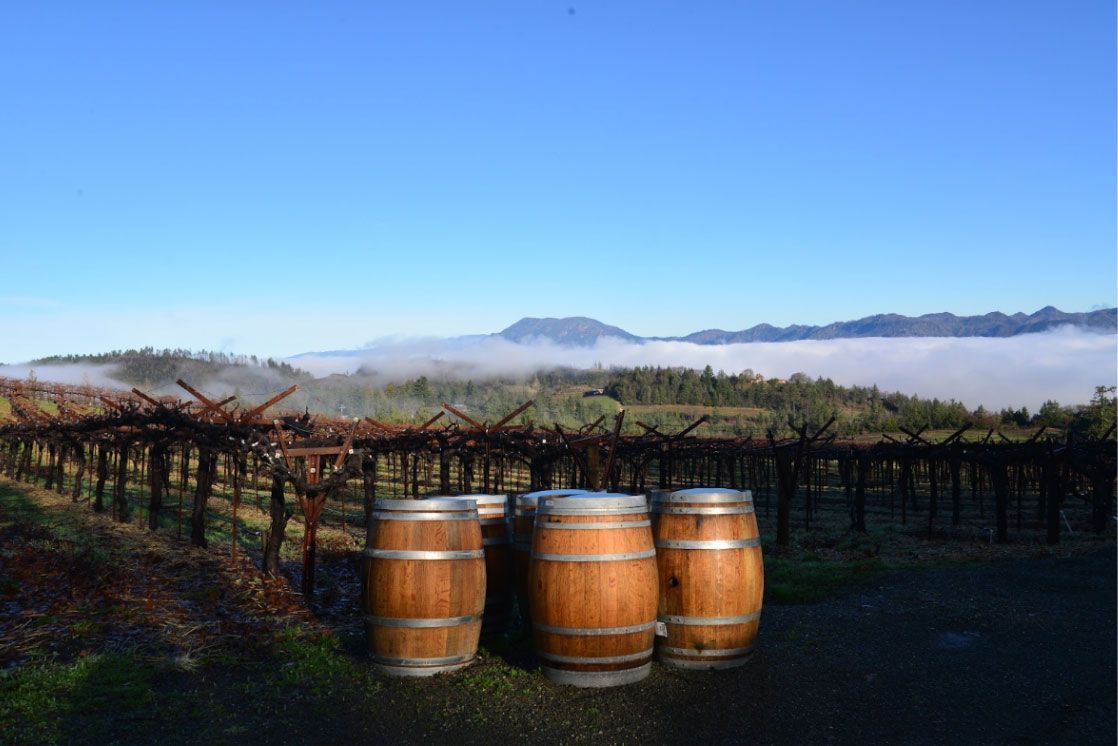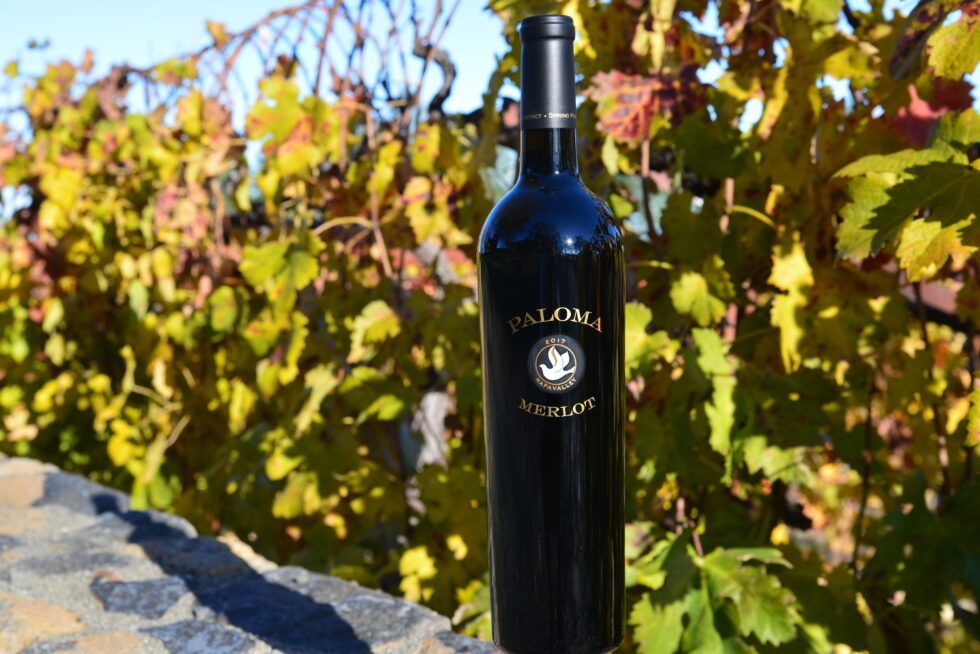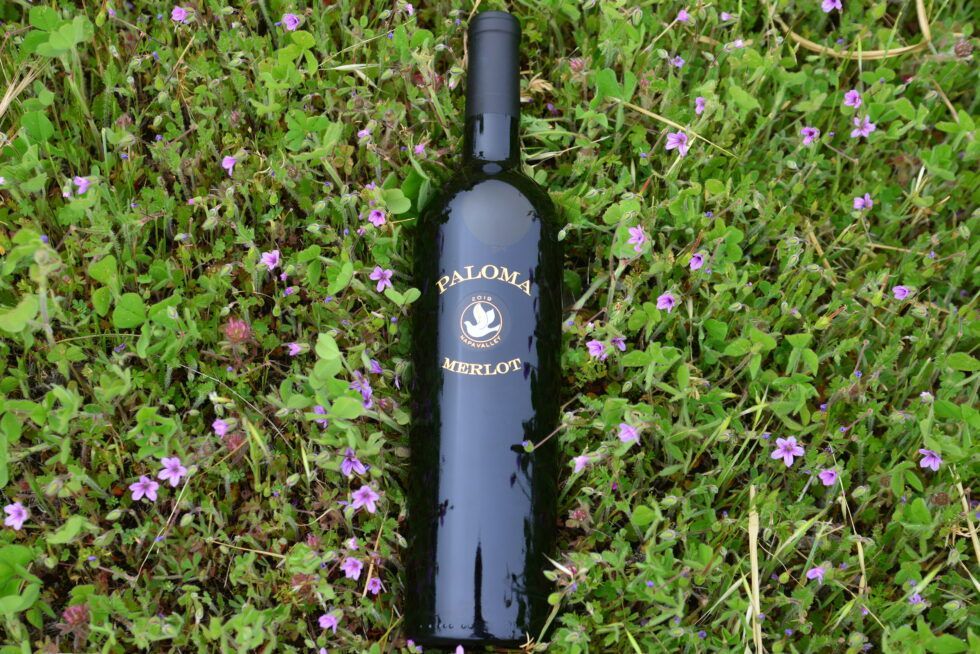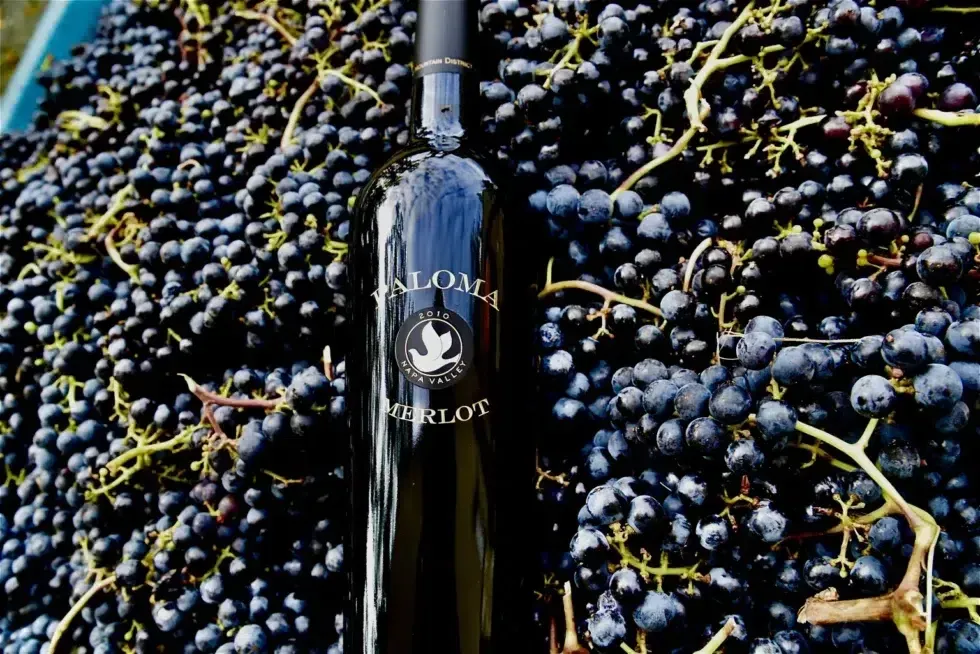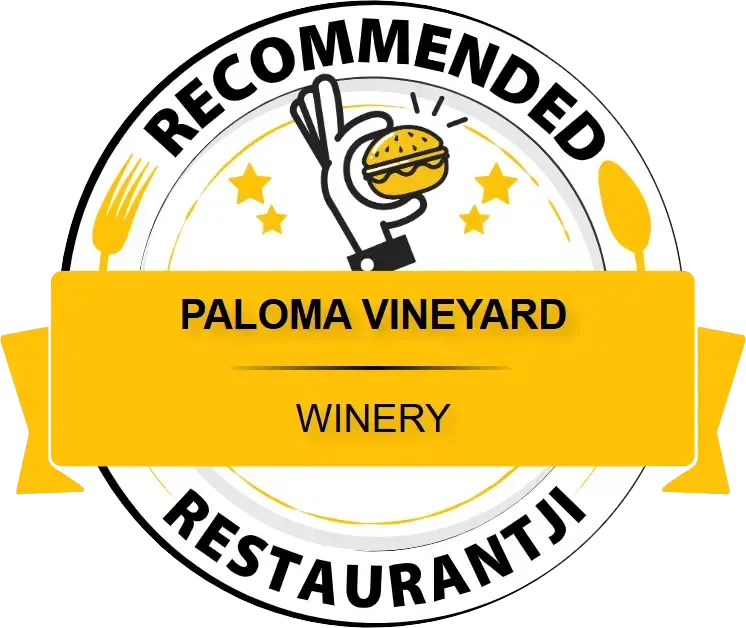Our Practices: Paloma Vineyard’s Regenerative Farming Journey
September 28, 2023
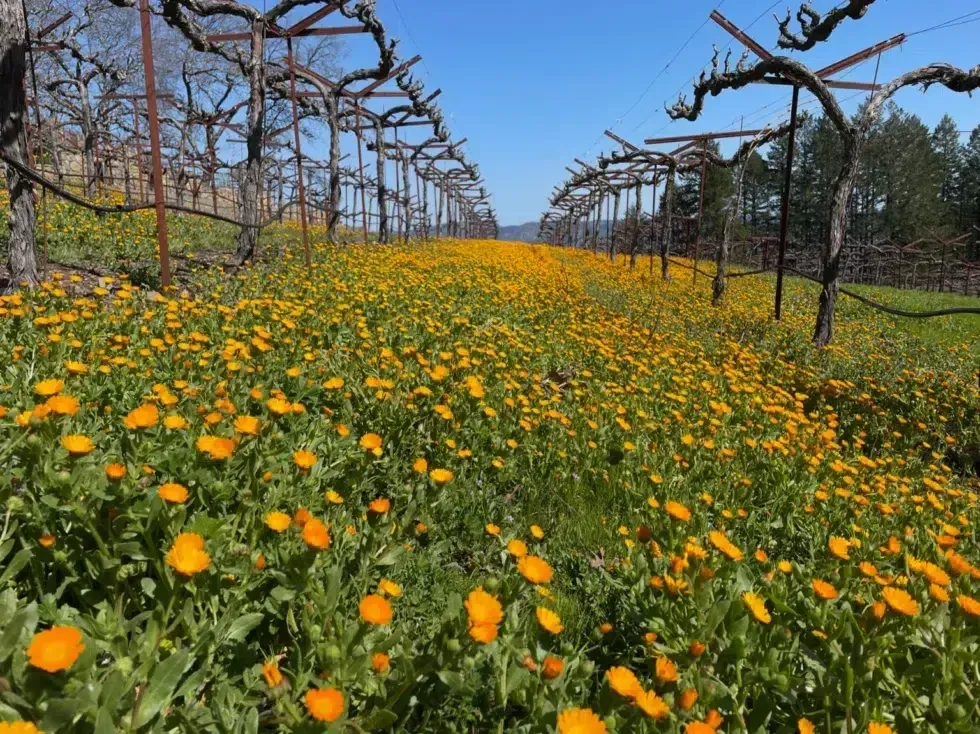
If you are unfamiliar with the practice of Regenerative Farming, we highly recommend reading this short breakdown! What is Regenerative Farming?
In 2021, shortly after the devastating fire season of the previous fall, and after numerous years of drought conditions, we began discussing alternative farming practices. The overarching goal was to create a more resilient farm. Both droughts and fires did not appear to be slowing down and it became clear to us that we needed to take steps towards mitigation. That same year, we chose a test block, known as the West Knob, to begin implementing some new practices.
This area has typically performed as a low-vigor and low-production block. A low vigor simply means less vine growth in comparison to the norm, or the surrounding vineyard in this case. Low vigor generally leads to lower fruit production and challenges with ripening.
In 2021, we focused on watering. We wanted to figure out if we could decrease our water volume and maintain the needs of the vines. Given that vine roots run relatively deep, we decided to shift from a bi-weekly watering regimen to watering on a 3-week cycle and slightly increase the volume at each watering. So overall less water going out, but more water in the ground at each watering cycle. Essentially, encouraging the water to fall deeper into the soil where there is less evaporation and less competition for water. While we still feel the thought process was sound, we realized that the key to getting the water deeper wasn’t just how long we watered, but how accessible the deeper soil was for that water. Meaning, does it have the porosity to accept the water we are giving it?
This question, along with other hopes, led us into the world of Regenerative Farming. In 2022, after some initial soil testing, we learned that the soil in the West Knob, our test block, had some nutrient deficiencies that were affecting the health of the vines. This made a lot of sense given the low vigor. We chose to continue the watering practice and compliment it with a diverse, multispecy cover crop. The cover crop would serve two major purposes: increase the nutrients and nutrient availability in the soil, and help create the porosity needed to allow the water to penetrate deeper into the ground—not only is this beneficial to our watering practices, it also means more water retention in the winter months when the rains come!
While we are not seeing increased vigor just yet, through soil testing and leaf testing we are already seeing upticks in the micro and macronutrients in both the vines and in the soil. After only one season!
Every site has varying needs and Paloma is no different. While we source all of our fruit from our small 15-acre vineyard, the farm’s varying sun exposures, soils, air flows, temperatures, and altitude, lead to microclimates throughout. Converting our entire vineyard into an effective regenerative agricultural system will require some trial and error and a good amount of time.
We started with a small block and are now beginning to expand. This fall, after the 2023 harvest, we will begin implementing vineyard-wide cover crops. By collecting soil and leaf samples from different areas of the vineyard, we will learn what our needs are and plant crops that will begin to replenish the soil and reinvigorate the ecosystem.
In the spring of 2023, we planted various varietals on different rootstocks in the West Knob, as well as other parts of the vineyard that will soon need replanting. The idea is to see what might be best suited to each specific area.
We will continue to adjust the cover crops as needed to foster the health of the varying soil needs and support a variety of wildlife, which includes beneficial animals and bugs. We have also transitioned to an organic-based spray cycle that helps to strengthen the ecosystem rather than hinder it.
Ultimately, that is our goal; to strengthen the vineyard for the next generations. This is a long-term thoughtful strategy that at its root is meant to create a resilient, sustainable vineyard for the future so that we can continue to create high-quality wine for generations to come. We are excited about these processes and look forward to sharing more about them in the future!
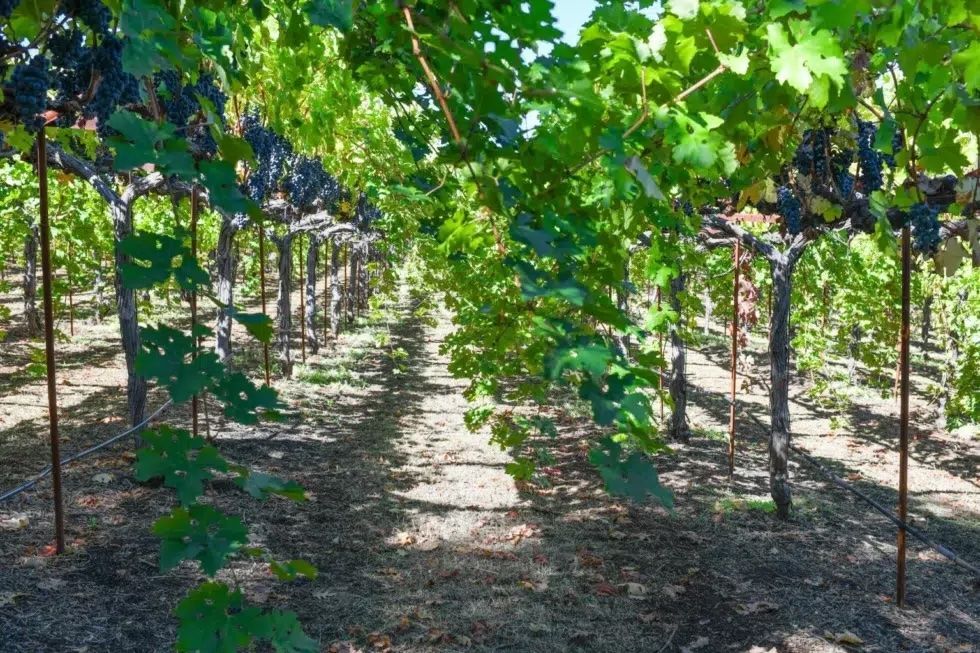
By caston
•
January 15, 2026
There’s a moment we often watch for during wine tastings with a view. A guest takes their first sip, pauses, looks back out at the vineyard, and then returns to the glass as if something has just clicked. That pause is terroir at work. Terroir is one of wine’s most talked-about ideas—and one of its most misunderstood. It’s often reduced to soil type alone, or treated as a romantic abstraction that sounds good but feels hard to pin down. At Paloma, we think of terroir more simply and more personally. Terroir is the story of a place—elevation, soil, climate & site influences such as wind, temperature changes and sun exposures. Essentially, it is what we do not control. What is not terroir? Farming practices, winemaking influences, branding, or anything that is unnatural in the process. To understand Terroir, we like to start with a walk through the vineyard.
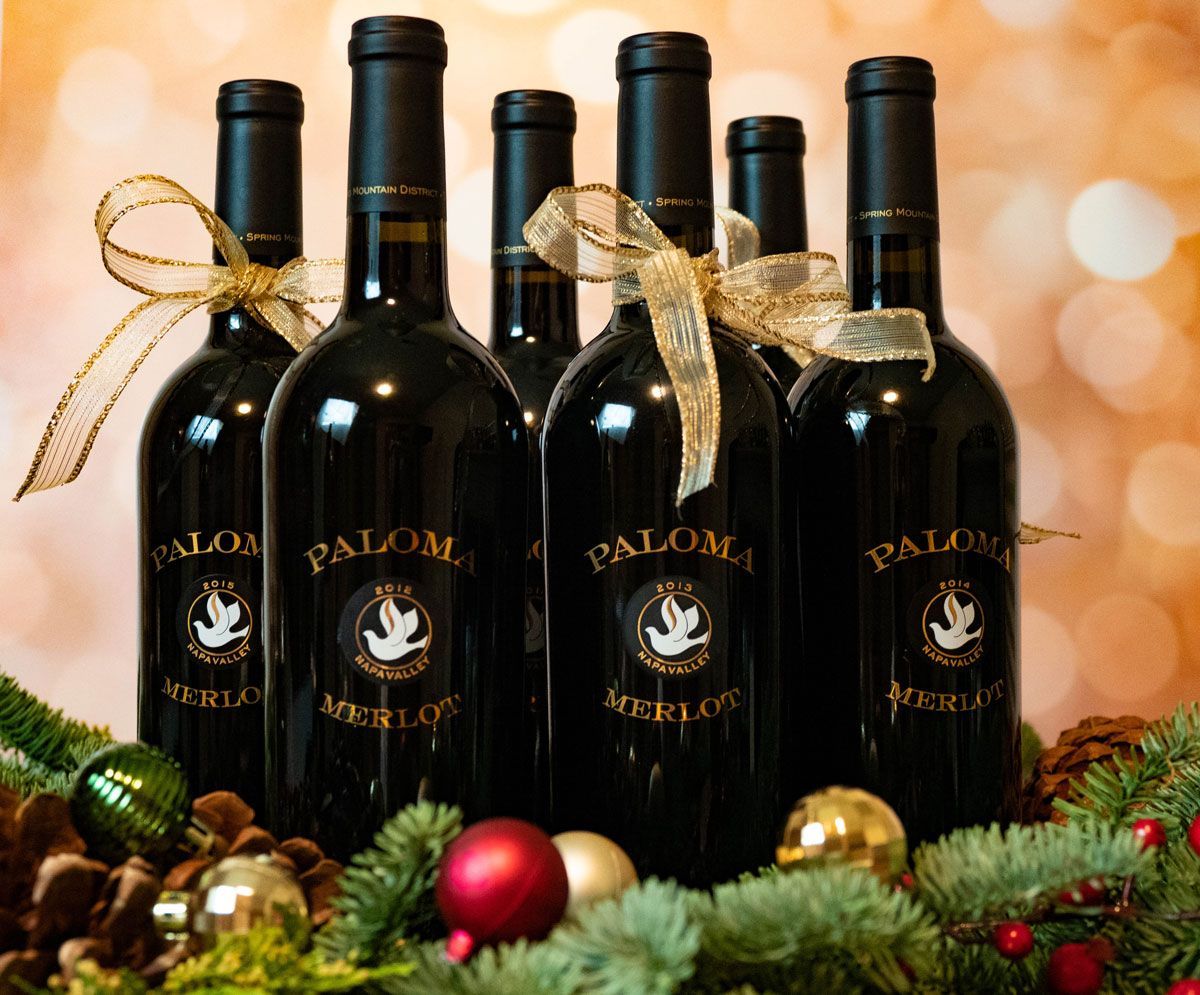
By caston
•
December 22, 2025
The holidays are a time of warmth, laughter, and lingering conversations around a table that feels just a little bit magical. At Paloma Vineyard , we believe that the right wine can turn a good holiday gathering into a deeply memorable one. Whether you’re cozying up by the fire or welcoming friends through your front door, choosing a holiday red that resonates with the season adds richness to every moment. Red wines, with their deep hues and comforting aromatics, often feel like the unofficial wine of cool nights and festive gatherings. This year, elevate your celebrations with selections that embody structure, balance, and that touch of elegance holiday hosts crave.
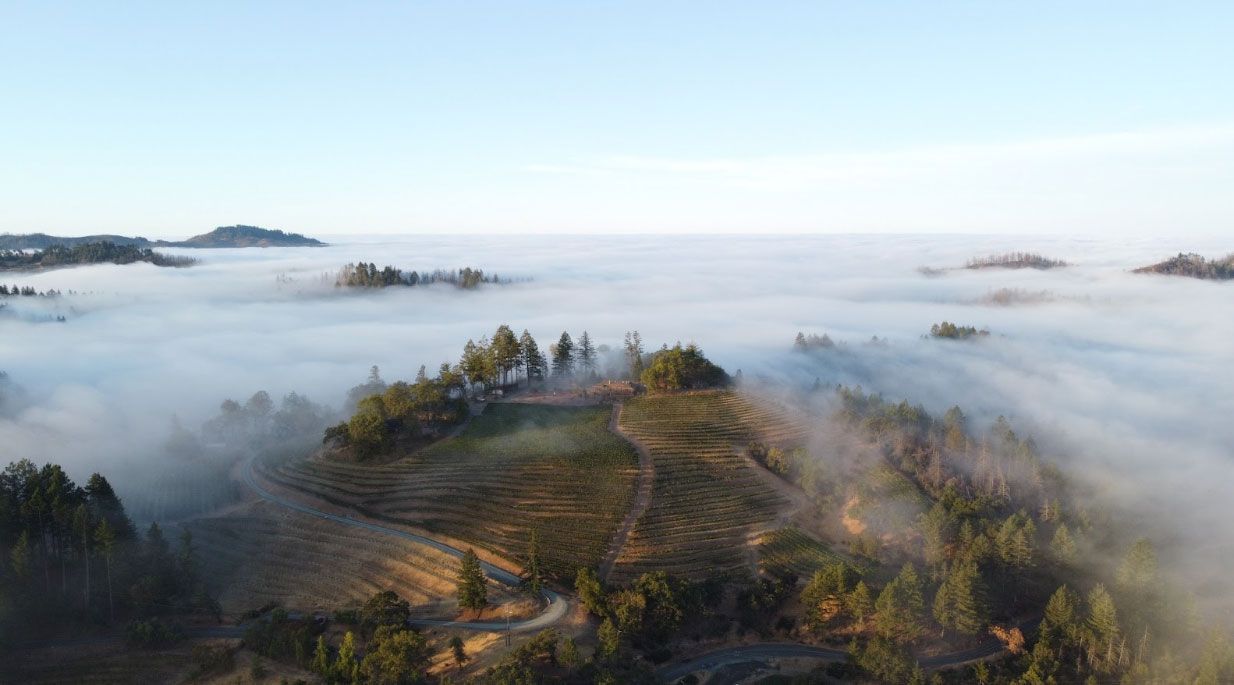
By caston
•
December 2, 2025
Nestled on the western slopes of the Mayacamas Mountains and overlooking the iconic Napa Valley, the Spring Mountain District AVA offers a truly elevated wine‑country experience. With vineyards planted on steep hillsides, above the valley floor, this mountain appellation is all about high altitude vineyards, dramatic terroir and a hospitality style grounded in family, craft and place.
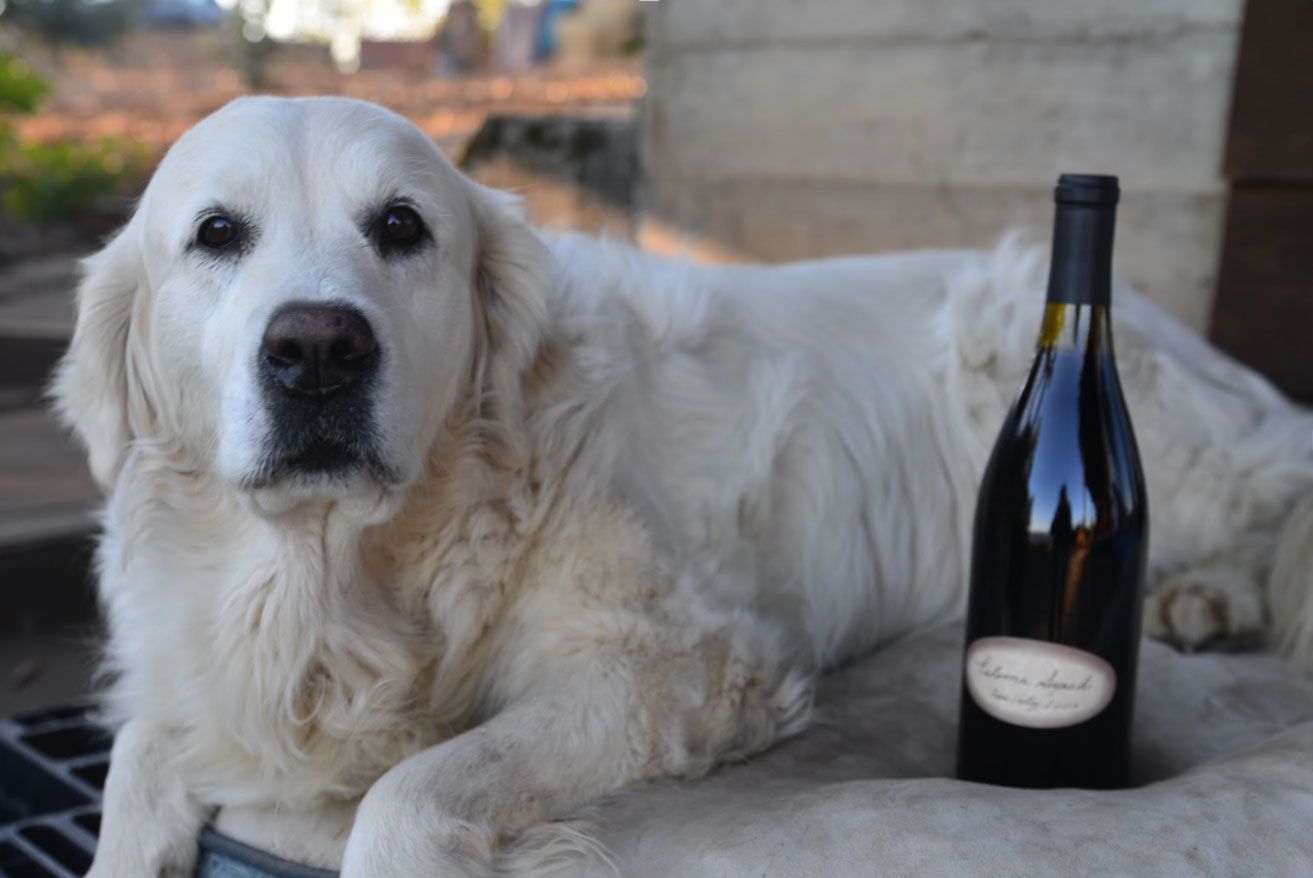
By caston
•
October 21, 2025
Wine tasting is more than etiquette and ceremony. It’s an opportunity to listen to your palate — to discover what flavors resonate most with you, so that in later tastings or purchases, you can ask for “more of that. ” When you can name what you like, you unlock a more rewarding, deeper wine experience. Below is your refined guide to wine tasting etiquette — yes — but always in service of helping you tune in to your preferences.
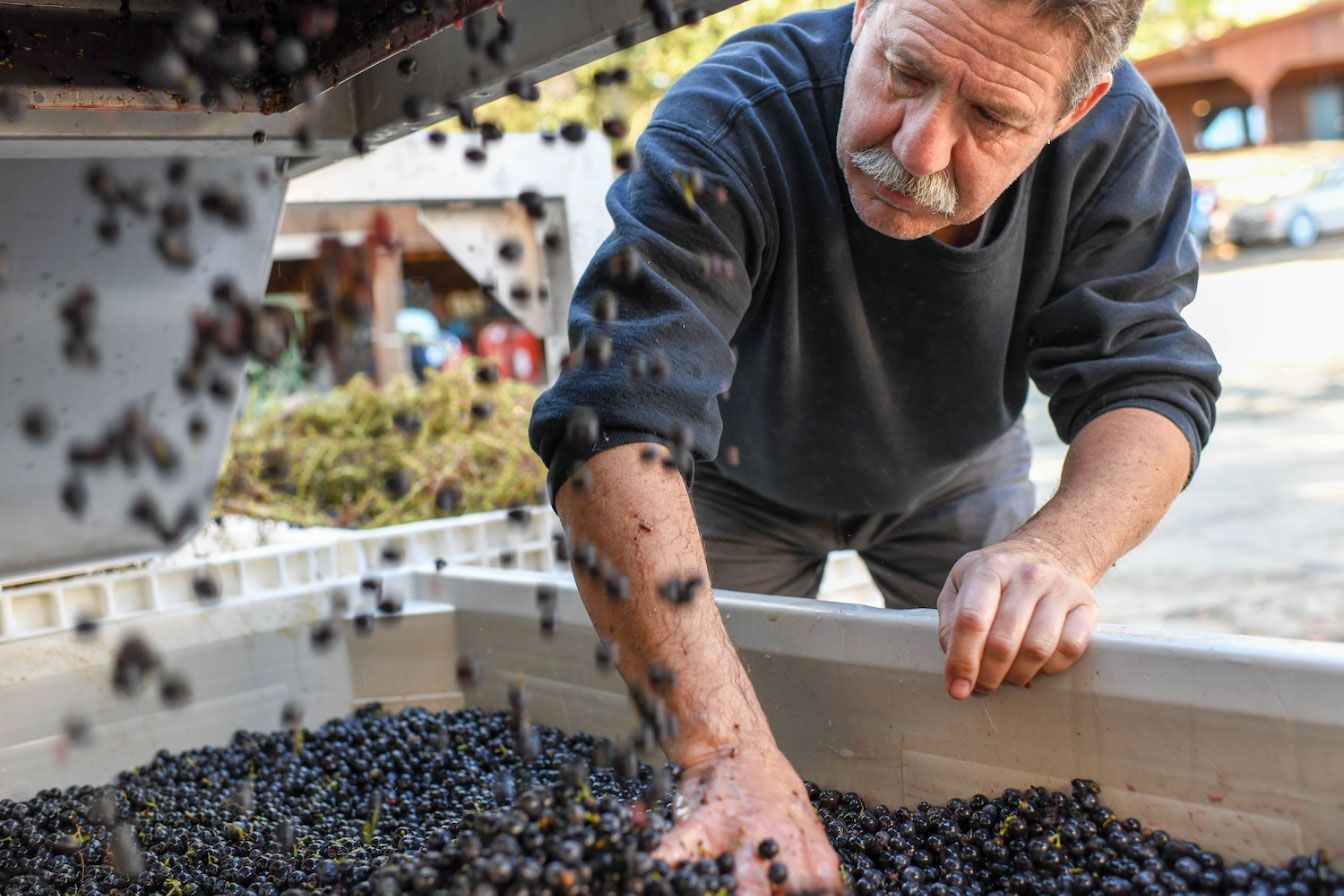
By caston
•
August 18, 2025
At Paloma, Merlot is the soul of our story. It is the grape that founders Jim & Barbara fell in love with on their journey to Spring Mountain. Picture this: it’s the late 1970s, and Barbara and Jim are visiting the Duckhorn vineyard, tasting their famed Three Palms Merlot. They lean into a sip and feel stirred—not just by the wine’s richness, but by its quiet elegance. That moment sparked something. They looked at each other and thought, “This is the wine we want to make. These are grapes we have to grow.” Before they even found the site, they had their hearts set on Merlot. By the time they found the raw land at the top of Spring Mountain, there was no changing their minds. Back then, planting Merlot at that elevation was almost unheard of—too cool, too risky. But they trusted their instincts and took the leap.
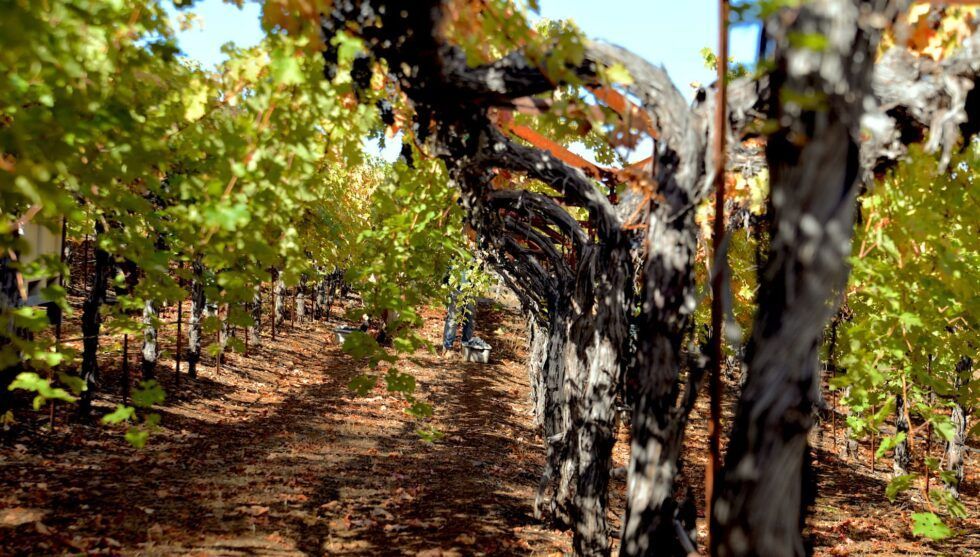
By WSI
•
March 26, 2025
At Paloma Vineyard, sustainability is more than just a practice—it’s the foundation of everything we do. Nestled on Napa Valley’s Spring Mountain, our small, family-run vineyard has been embracing sustainable and regenerative farming for over four decades. Every choice we make, from cover cropping to solar power, reflects our deep respect for the land and our commitment to producing exceptional wines that honor both our family legacy and the environment.

